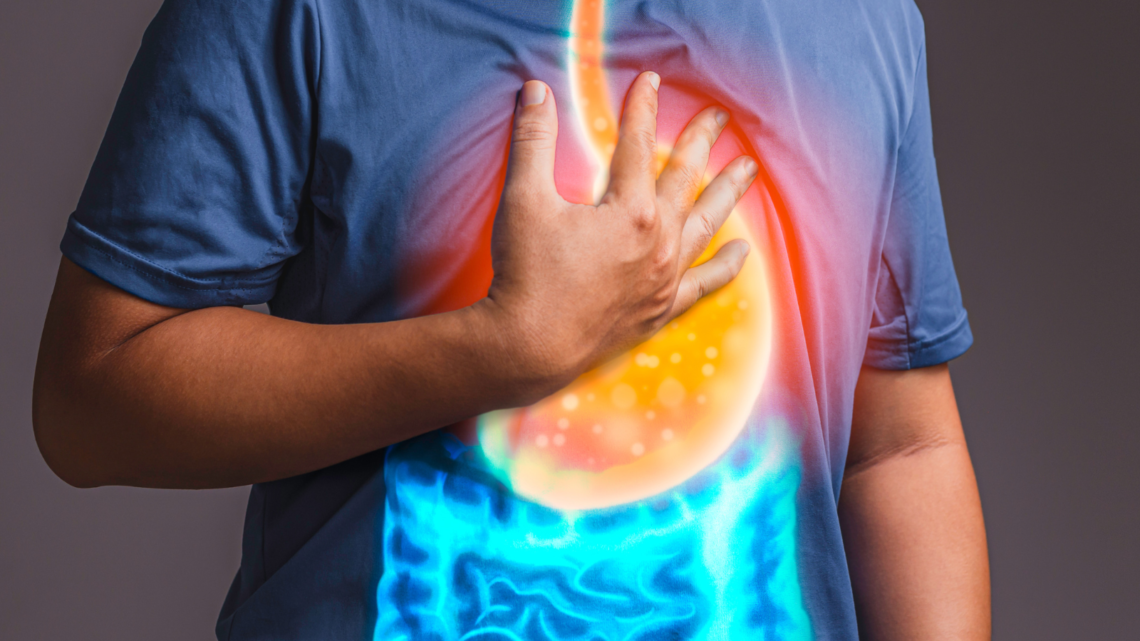
Finding Relief from Indigestion
Indigestion – also known as dyspepsia – is very common and can happen to anyone. It is described as persistent discomfort and burning in the upper abdomen and is most commonly caused as a result of certain eating habits (from the types of foods you eat to how quickly you consume your food, as well as if you lay down too quickly after eating.) It can also be triggered by chronic digestive problems.
Below you’ll find information some of the most common symptoms that are associated with indigestion, the risk of developing other health issues as a result of indigestion (or the different types of health issues that can occur as a result of indigestion), as well as tips on what you can do for temporary relief.
As mentioned, one of the most common reasons why someone might develop indigestion is due to their eating habits. Foods that are known to cause indigestion and other related symptoms, such as heartburn, include those that are fried, greasy, onions, garlic, black pepper, tomatoes, chocolate, peppermint, citrus fruits, and spices. Certain kinds of beverages such as fruit juice, coffee (and other caffeinated drinks), alcohol (red wine, in particular), as well as soda and tea can all lead to indigestion. Aside from food and beverages, indigestion can also be caused from certain lifestyle habits, such as if you’re a smoker, or may even be the result of certain medications (especially anti-inflammatory drugs like ibuprofen.) When you have indigestion, you may also experience stomach pain and bloating, feel full during meals and/or won’t be able to finish a full meal, feeling as if your stomach is in knots or as if it’s “gnawing” at you, as well as gas and belching. These symptoms can also be caused by conditions such as acid reflux disease or GERD (gastroesophageal reflux disease), peptic ulcers (sometimes cause by H. pylori bacteria), abnormalities with the pancreatic or bile ducts, and gastric cancer.
While indigestion is usually easily diagnosed, your physician may need to refer you for a special test called an upper gastrointestinal (GI) endoscopy. An endoscopy is performed by inserting a small tube with a camera through your esophagus and into your stomach so that your doctor can have a better look at your digestive tract and its lining, determine whether or not any diseases may be present, as well as collect tissue samples if they deem it necessary. This test is done under mild sedation and can be helpful in diagnosing other conditions like reflux esophagitis, ulcers, different inflammatory diseases, as well as certain cancers. You may also need to go for an additional test, such as a barium swallow, if you have symptoms of GERD or other problems with food digestion, such as swallowing.
If no other gastrointestinal issues are found on any of these tests, then indigestion is usually easy to treat by taking over-the-counter antacids, which can be taken before or after meals. In some cases, these over-the-counter antacids will not be strong enough to combat your symptoms and physicians like Dr. Ghahary will need to prescribe patients something stronger. Examples of prescribed medications to treat indigestion and GERD include H2RAs (H2 receptor antagonists), PPIs (proton pump inhibitors), and Prokinetics. H2Rs help to reduce stomach acid, as do PPIs (though they are considered to be stronger than H2Rs), while Prokinetics help to improve the motility of the digestive tract. Keep in mind that while it is uncommon, these medications can cause side effects in some individuals, which may include nausea and vomiting, constipation or diarrhea, headache, dizziness, rash or itchy skin, abdominal pain, depression, anxiety, and fatigue. If you notice any of these side effects or find that the medications are not helping your symptoms in any way, be sure to address this with your prescribing physician so that they can determine whether or not they need to switch you to a different medication.

